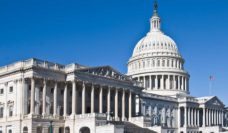If you follow the national health policy discourse fairly attentively, odds are you have regularly vacillated between feelings of puzzlement and anxiety over the last few months. You are not alone.
Perhaps the most bewildering development was the House’s revival and passage of the American Health Care Act (AHCA) on May 4, a mere six weeks after it was withdrawn and declared dead by many. The dizzying speed of the proceedings, the absence of public hearings on the AHCA’s core provisions or a Congressional Budget Office score to weigh them, the efforts to hide its text from the press and even from many members of Congress to avoid leaks, and mixed messages even among its supporters about many of the bill’s components (e.g., how protective the bill is for individuals with pre-existing conditions) all added to the public’s collective feelings of insecurity as the AHCA reached the floor.
And for those looking ahead, the anticipated effects of the bill itself, if signed into law, would be highly disruptive. Many important and popular provisions of the Affordable Care Act (ACA)—the law of the land for seven years now—would be dismantled, leaving more than twenty million people without health insurance. With the AHCA’s passage (particularly in the context of other policy developments I discuss below), all bets are off. Few can predict with any measure of confidence what health policy measures the federal government will take next.
But the magnitude of the uncertainty about federal health policymaking and its effects has varied dramatically across the health care system’s many stakeholder groups. As has been widely covered, the recent uncertainty has been especially troubling for insurers, as they must decide by June 21 whether they will participate in the ACA’s health insurance exchanges in 2018. In addition to the AHCA’s movements, insurers have been disquieted by the administration’s temporary withdrawal of ads—which research has highlighted as important for promoting coverage—during the market’s 2017 open enrollment period and because neither Congress nor the White House has committed to funding the ACA’s cost-sharing reduction subsidies, among other developments. Moreover, the administration’s transparent antipathy toward the marketplaces—illustrated at intervals in President Trump’s Twitter feed—give insurers little confidence that, if they should agree to participate in the marketplaces in 2018, they will not be left holding the bag when another shoe drops between July and December.
Why is it that the Fake News rarely reports Ocare is on its last legs and that insurance companies are fleeing for their lives? It’s dead!
— Donald J. Trump (@realDonaldTrump) May 5, 2017
Yet while these national developments have been well-covered, by contrast the implications of this uncertainty in federal policy for policymakers at the state level have gone largely unnoticed. This is unfortunate given that, during the ACA era, many important health policymaking decisions have fallen to the states, such as whether to expand Medicaid. And when my colleagues David K. Jones (PHP Editor in Chief) and Leigh Evans and I interviewed state leaders—legislators, Medicaid officials, and key personnel at provider organizations and Medicaid managed care organizations—about their Medicaid expansion debates, their uncertainty about the future of federal health policymaking on Medicaid loomed large.
Our findings from interviews with leaders in Kansas and North Carolina, two states that have not yet expanded Medicaid but considered it earlier this year, are instructive. As in many non-expansion states, our interviewees there recalled that their debates on Medicaid expansion proposals had been significantly informed by popular (and political) opposition to the ACA and a low opinion of the Medicaid program’s effectiveness in general. However, our interviewees often underscored that their states’ decision-makers had resisted Medicaid expansion proposals significantly because of their strong skepticism that the federal government would fulfill the ACA’s commitment to fund Medicaid expansions at the enhanced 90% Federal Medical Assistance Percentage level in perpetuity (or even in the medium term).
Thus, even if advocates’ budget projections with a Medicaid expansion looked rosy, the federal government—and, therefore, the budget projections—could not be trusted. Kansas Governor Sam Brownback identified this uncertainty specifically in his public statements explaining why he vetoed the state’s Medicaid expansion bill earlier this year. And today, as the AHCA and other legislative proposals that would phase out the ACA’s Medicaid expansions and otherwise restrict funding for Medicaid programs take steps toward becoming law, leaders in non-expansion states who expressed this sort of skepticism are increasingly vindicated. Meanwhile, expansion states’ leaders are becoming increasingly anxious they may be confronted with the unenviable choice between maintaining their expanded Medicaid programs without enhanced federal financing or dropping thousands of Medicaid beneficiaries from their programs’ rolls.
Should the AHCA or something like it be signed into law, states will have even more decisions to make, such as whether to relax the ACA’s community rating requirements, how to fund and structure their high-risk pools, or reconsider whether to modify their essential health benefit standards. These would be added to the array of decisions state policymakers have made in recent years or regularly, such as on Medicaid eligibility, benefits, and payment levels, on the structures of health insurance rate review programs in commercial insurance markets, or on the scope of practice restrictions imposed on non-physician clinicians.
While not all of these decisions are likely to be enshrouded in as much federal policymaking uncertainty as Medicaid expansion debates in Kansas and North Carolina were, several may. One important example is in the implementation of state high-risk pools. If state policymakers expect that the policy structures governing state high risk pools are ephemeral and may be changed significantly under future administrations, the complex patient populations that would depend on these high risk pools may experience inadequate, delayed coverage as a function of insufficient funding allocations and delays in implementation.
But even if no major Republican health care bill passes in this Congress, the uncertainty hanging over federal health policy is likely to persist and may even grow over the next few years. This is true even if, and perhaps particularly if electoral projections continue to suggest that Democrats will make significant gains in 2018 and 2020. States could expect many of the decisions of today’s Republican-led administration would be overturned by new Democratic leadership. In this atmosphere, it will be difficult for states, insurers, and other health system stakeholders to make significant investments in new initiatives and programs or reforms in existing ones, no matter how much they are needed.
Feature image: Brian Jeffery Beggerly, IMG_4230, Random life preserver/used under CC BY 2.0/cropped from original













